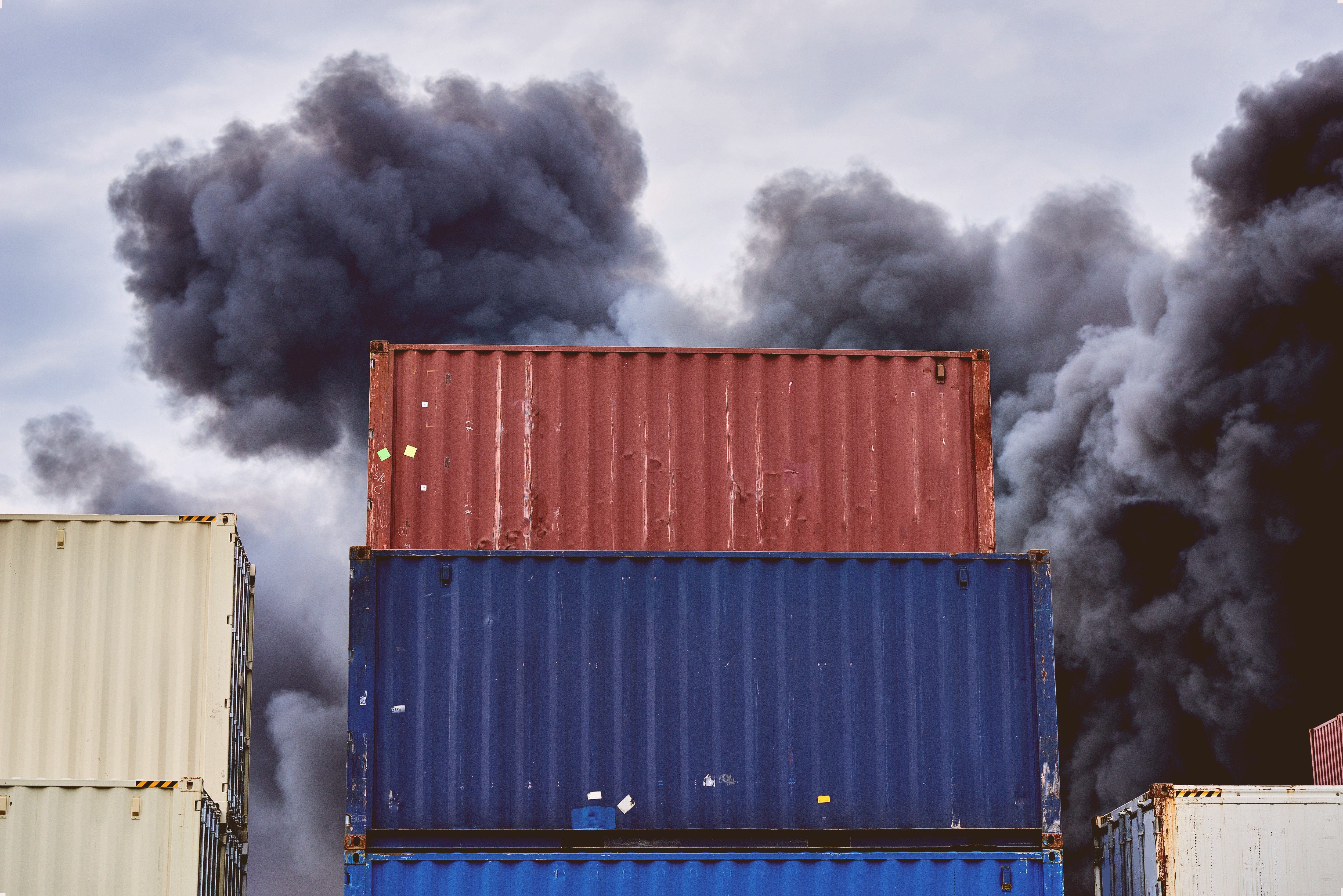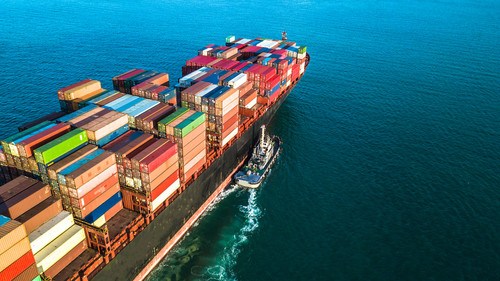Fire hazards from containerised cargo are an increasing problem in the container shipping sector and one industry expert believes that the competition regulations are making the issue worse as liner operators are forbidden from discussing their customers with each other.
Competition rules are sensible when promoting fair competition, but those same rules could mean that lines cannot confer on hazardous cargoes and the misdeclaration of cargo, which could lead to vessel fires, the loss of lives and the wholesale destruction of cargo.
Last year saw serious container ship fires average around one a month with the first two fires, on Yantian Express in January and APL Vancouver in January and in March with the loss of the Grimaldi vessel, Grande America.
Cargo fires are happening more regularly and burning with greater intensity because ships are increasing in size meaning that there is more misdeclared cargo on board a vessel and when this cargo is stowed it is often in the vicinity of freight that will act as fuel to the initial fire.
An example of such an event is the Maersk Honam, which saw a fire burn with such intensity that salvage company Smit said it melted the vessel structure, including the lashing bridges.

Peregrine Storrs-Fox Risk management Director at the TT Club told Container News many of these cargo fires are due to mis-declared or undeclared cargo. Some shippers can be unaware of the possible dangers of particular cargoes, such as charcoal and can inappropriately declare their cargo, which during the course of the voyage can ignite. Others seek to reduce shipping costs by not declaring hazardous cargo, leading to a shipping line inappropriately stowing the container.
However, the competition regulations prevent lines from discussing shippers and their cargoes between them, even if they are alliance partners. According to Storrs-Fox this could mean that a shipper could be refused by one shipping line and then “go around the corner” to another line and book their cargo for transit. As alliance partners share ships this could mean that a hazardous cargo refused by one line could end up on the same vessel it was originally banned from by the first line without the carrier knowing.
According to Storrs-Fox this is a situation that can be rectified by small alterations to the competition law that would allow the carriers to share certain types of information.
Even with these inconsistencies and the clear loss of life and danger to the environment it is apparent that the regulators have not understood the improvement in safety that some collaboration within the industry could provide. The European Commission told sees no contradiction between competition and safety rules. It says shipping lines must respect safety rules and are not supposed to engage in collusive behaviour regarding price and terms of service.
Nick Savvides







